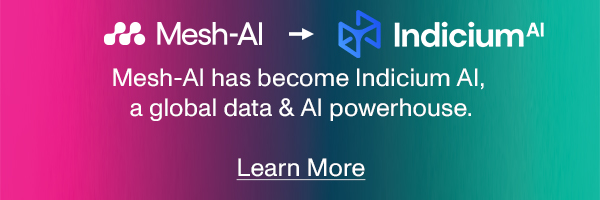


Lorenzo Nicora recently joined Mesh-AI as a Principal Data Consultant.
We sat down with him to learn more about his background and what led him to join the Mesh-AI team.
I started my IT professional journey 25 years ago, after completing an MSc in Aerospace Engineering.
I’ve had a slightly different experience to the average IT career.
From the very beginning I’ve been responsible for end-to-end project delivery. This meant doing everything from engaging with the business and understanding the problems they faced to designing and delivering the solution itself.
This experience enabled me to approach problems from a holistic perspective, rather than just building technical artefacts—an approach that has stayed with me my whole career.
Over the last decade, I developed a particular interest in distributed and data-intensive systems and was an early adopter of the AWS cloud environment.
I worked with cloud-based, data-intensive systems, both in finance product companies, like Nutmeg and CMC Markets, as well as at DevOps and software development consultancies. During this time, I was able to appreciate how organisations struggle to extract value from their data due to a divide between software and data engineering, and siloed approaches to data problems.
My fondness for the holistic approach and my deep interest in data is what led me to Mesh-AI, a startup consultancy focusing on data, AI and machine learning.
We’re on a mission to refocus the enterprise around data. I’ll be working with organisations to bridge technology divides, connect siloes and to enable them to put data at the heart of their business in a scalable and resilient way.
Firstly, coming from a strong background in microservices and DevOps, I was an early adopter of the idea of data mesh. The data mesh is a decentralised, yet federated, approach to data (you can read more about how it works in real life here) and is an approach that Mesh-AI are taking when looking at end-to-end transformation.
It’s also a really interesting and rewarding experience to join a company right at the beginning, when both the culture and capabilities are being shaped. It is an exciting time to have joined and I can’t wait to see how the business grows over the next few months!
For me, a good company culture is based on trust.
All employees should be trusted to make decisions, have an impact and be able to speak up if they think there are better ways to solve a problem. Decisions should be based on recognition of specific areas of competence, not just on hierarchy!
Breaching the organisational divides.
I see that a lot of problems stem from fundamental organisational divides or siloes, for example, between development and operations or between data teams and engineering teams.
I love helping to break down these walls and then seeing how everyone organically starts to communicate and collaborate in new and better ways, which then feeds into a vastly superior end product.
Ideally, they should invest in AI and ML to make the best use of all the valuable data that enterprises have.
In practice, however, they are seldom able to really implement these technologies effectively due to the poor state of what is traditionally identified as “data engineering”.
So, in practice, companies should invest in breaking the divide between “data” and “software” engineering, adopting the many advancements we saw in the latter over the last 20 years such as DevOps and agile ways of working.
Then they will be in a position to tackle more advanced technologies like AI and ML.
Big data and AI projects should be introduced as a way for solving specific business problems. By focusing on the business outcomes it will make their product more beneficial and more likely to succeed.
You can approach this like any other modern software project, considering the entire lifecycle of the project and facilitating collaboration between data scientists and the other practitioners. By doing this, you’re more likely to deliver an outcome the customer wants.
This is an exciting time to try new technologies and ways of working for greater customer satisfaction. If you get it right, the rewards are big!
Thanks, Lorenzo!
Interested in seeing our latest blogs as soon as they get released? Sign up for our newsletter using the form below, and also follow us on LinkedIn.
